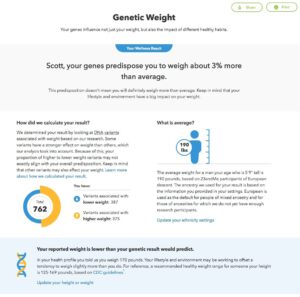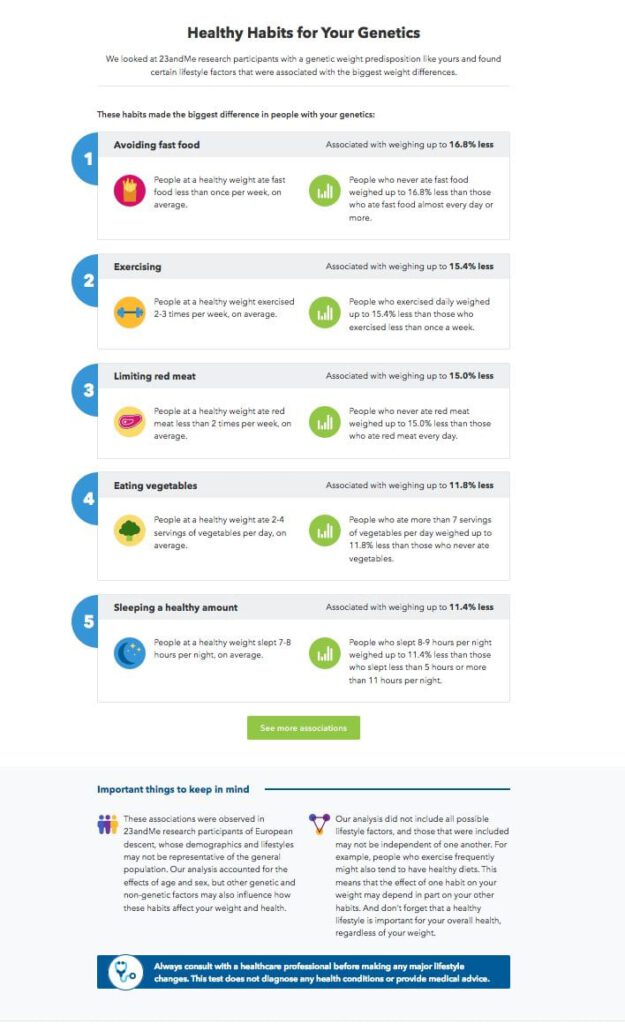Large scale genetic and non-genetic data plus machine learning, used to provide personalized portraits of how genes and lifestyle impact weight
Have you ever wondered if it’s your genes keeping you from fitting into your jeans?
Not Just Genes
You’re not alone, and plenty of research shows that the genetic cards we are dealt at birth play an important role not just in our weight but in how much our bodies respond to diet and exercise. Our weight is determined by a complex combination of lifestyle, environment, and genes.
Armed with a collection of data from over 600,000 research participants, 23andMe scientists used machine learning techniques to estimate BMI based on genetics. Key results from these analyses also showed that lifestyle factors such as diet and exercise may affect weight. That affect is also dependent on a person’s genetic makeup.
What is the Genetic Weight Report
This research resulted in a new, first-of-its kind Genetic Weight report. It incorporates both genetics and lifestyle and calculates a person’s genetic predisposition to weigh more or less than average. The report also provides insight into which lifestyle factors might make the biggest difference for a person’s own weight.
This report breaks new ground because it’s the first time that 23andMe scientists have been able to leverage our internal research data. This is an immense amount of information generously contributed by research participants for a health-related report. It is based on over 300 variants found to be associated with weight in 23andMe’s own database. It also customizes results based on age, sex, and ancestry.
Gene-by-Environment
23andMe scientists have also incorporated important in-house findings about lifestyle and genetics. These so-called “gene-by-environment interactions” are based on data contributed by over 45,000 research participants.
Each personalized report provides a ranked list of lifestyle factors found to be associated with the biggest weight differences. This is based on each person’s genetic result. In other words, this information shows how people’s specific genetics may influence their own responses to not only exercise and certain food choices, but also to factors like sleep and stress. This could help customers prioritize their own choices for maintaining a healthy weight.
The Genetic Weight report marks a first step towards the kind of personally tailored wellness reports. Future reports will build on the insights found through creating a machine-learning model. These type of AI models leverages the massive amount of data from customers who consent to participate in research.
For more on the science behind this report see our white paper.





